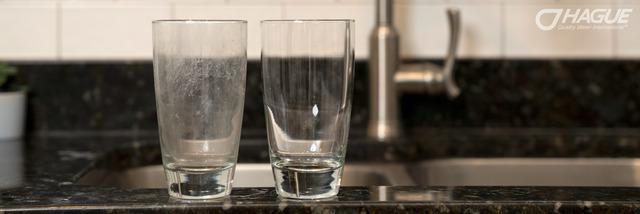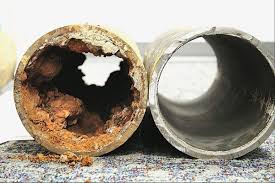Hard Water
What is Hard Water?
In case you were wondering what is in hard water, and why it such a big deal. Hard water is water that has a high mineral content, primarily calcium, magnesium, along with other trace amounts of other minerals. It’s a naturally occurring result of minerals like calcium and magnesium dissolving within the water as it percolates through the ground during the water cycle, and it can happen with well water and even city water. The more calcium and magnesium dissolved in the water, the harder the water. This is why certain cities and counties within the same state can have varying degrees of water hardness.
Understanding and Addressing Varied
Challenges of
Hard Water in Texas:
Hard water problems are very common in most of Texas, but some are more extreme than others. In your city or even your neighborhood, the water hardness will vary because of the different sources for city water or depth of a well.
Hard water is safe to drink and wash with, but over time it can lead to inconvenient and costly problems like:
- Ugly stains in sinks and tubs.
- Higher water bills because water appliances work harder.
- The cost of replacing clothes and linens ruined by hard water
The degree of hardness increases with more measured dissolved calcium and magnesium. How this is measured can be in multiple formats (see the chart below). For example on Canyon Lake’s Water Quality Report the total hardness is measured in parts per million (ppm) which show amount detected to be 333 ppm. If you look on the chart below, anything over 181 ppm is considered VERY Hard. That same report also states the acceptable hardness range allowed is 187–333 ppm which means that entire range is above the VERY Hard level.
As there are other minerals (iron, manganese) and the level of the pH in water, also contributes to (compensated) hardness, in local tests, we find that our local Municipal’s test between 25-35 grains per gallon (gpg) or 428 – 599 ppm. This is higher than they report, because they are only reporting on calcium and magnesium – your plumbing feels compensated hardness!
While most contaminants are reported in ppm, Hardness is usually reported in gpg (grains per gallon). Sometimes water companies like to get a little tricky in their reporting. Below is a chart to help you do the math.
What are the signs of hard water?
- White, chalky residue or spots on dishes and in your dishwasher.
- Clothes and linens that feel rough and look dull.
- Scale buildup on faucets and ugly stains on white porcelain.
- Dry skin and flat hair – because soap just doesn’t lather or rinse completely away.
- Low water pressure from showers and faucets due to clogged pipes
For the reasons above, there is an entire industry that specifically deals with “hard water”. Left untreated, the minerals in hard water will cause yellow stains on plumbing fixtures and be deposited as scale, eventually clogging plumbing and shortening the life of appliances like washing machines, water heaters, and dishwashers. Ultimately, affecting your investments as they cost you money, increasing both energy and maintenance bills. Contact AquaCheck today to find out more information!! (346) 777-0539




